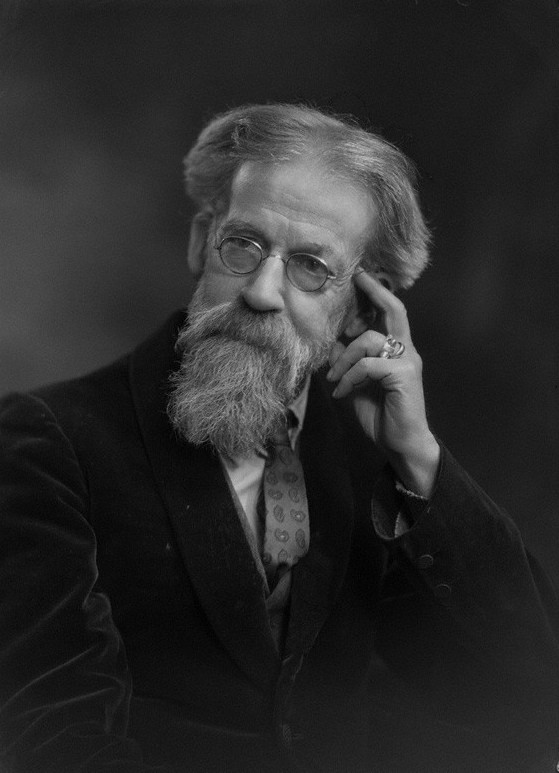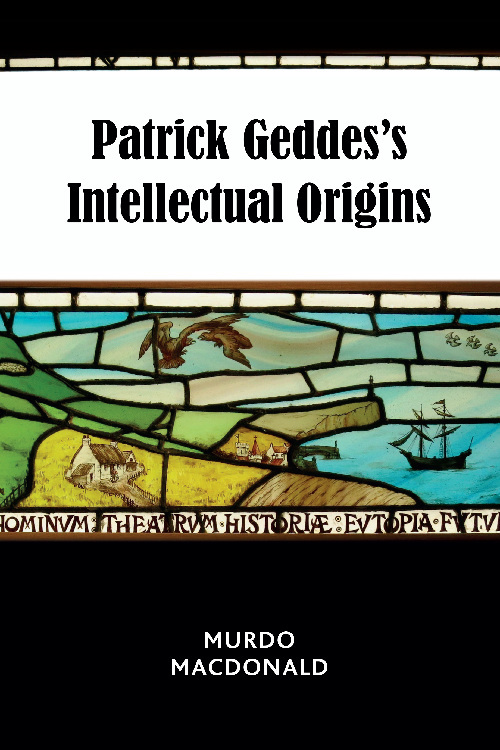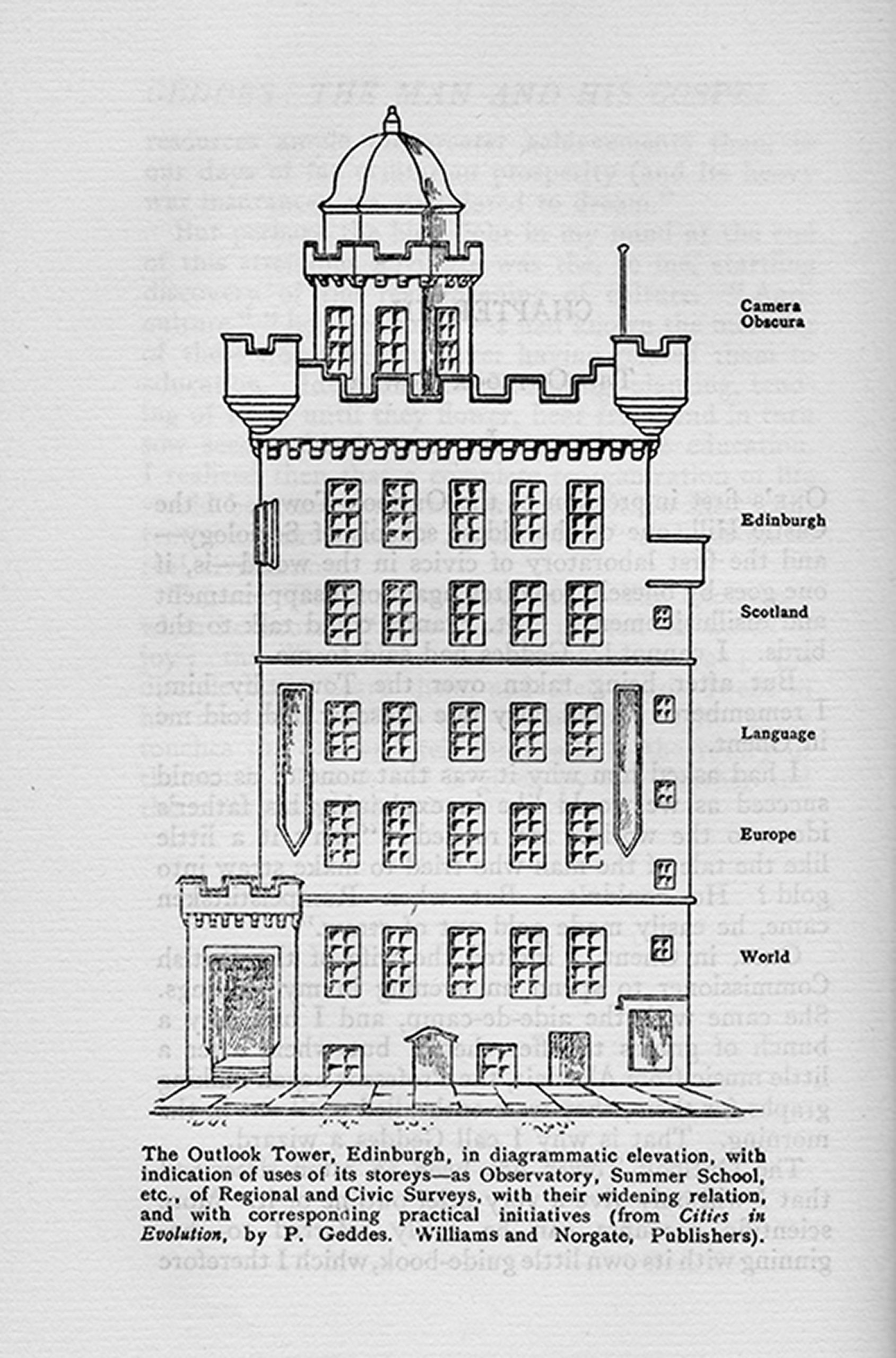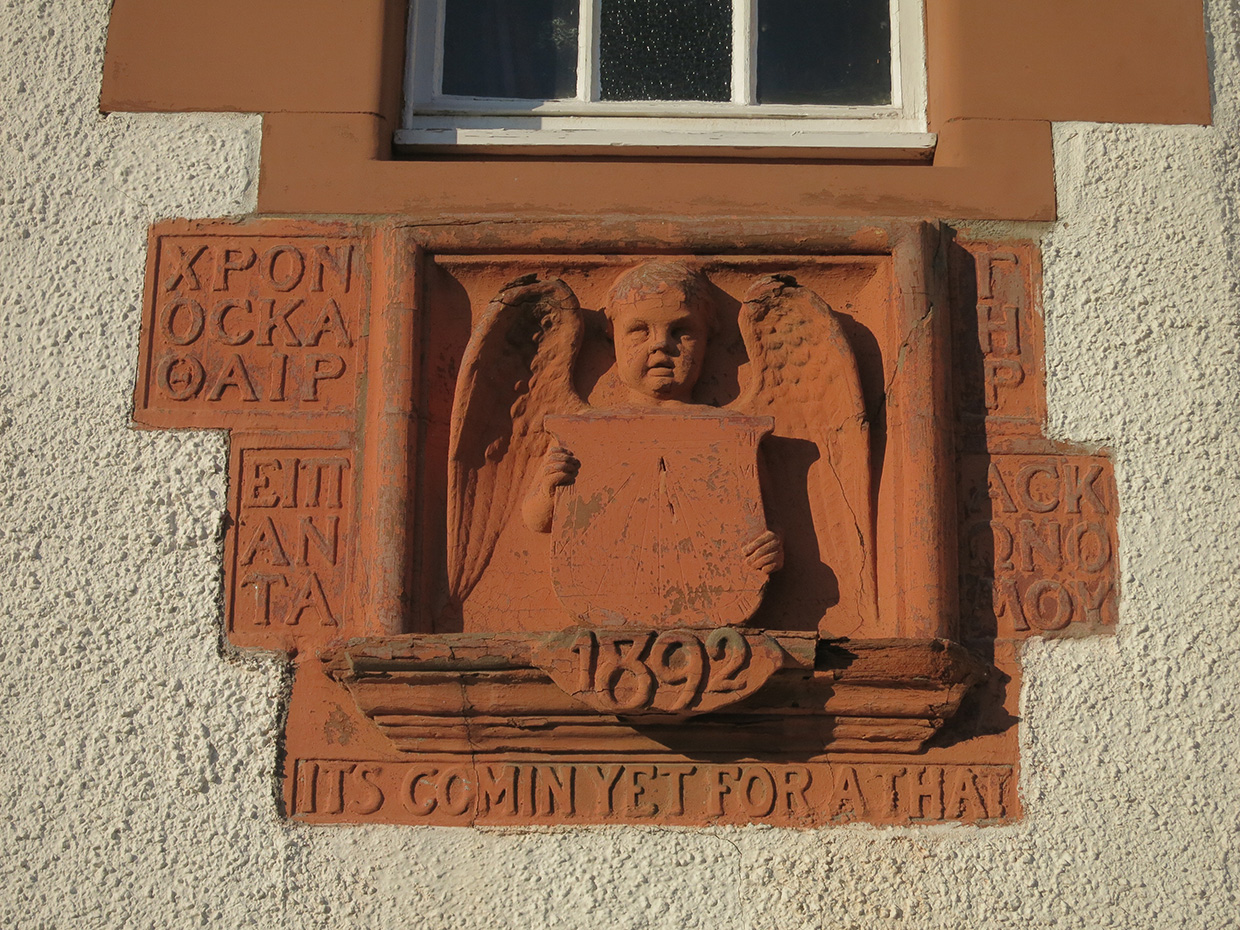
Read on to find out what inspired Murdo Macdonald to research Patrick Geddes in his new book Patrick Geddes’s Intellectual Origins, available now on the Edinburgh University Press website.

What inspired you to research Patrick Geddes?
In my doctoral work at the University of Edinburgh some years ago I explored the relations between arts and sciences. At that time Patrick Geddes was just a name to me but I soon realised that his work was a key example of an effective interdisciplinary approach. At the same time I became aware of how little the Scottish aspect of Geddes’s work was understood. That resonated with my other activities which were focused on the advocacy of Scottish art, an advocacy that Geddes had shared a century earlier.
That is what drove me to write this book. Patrick Geddes is one of Scotland’s most remarkable interdisciplinary thinkers, yet the Scottish context of his thinking has not been properly acknowledged. So my book explores Geddes’s Scottish intellectual background in depth for the first time, highlighting his insistence on the importance of both arts and sciences, and emphasising that his originality – whether in ecology or cultural activism – was embedded in the interdisciplinary culture of Scottish thinking in the late 19th and early 20th century.

Diagram of Patrick Geddes’s interdisciplinary Outlook Tower 
Sundial with quotes from Aeschylus and Burns on the wall of Geddes’s Ramsay Garden
What was the most exciting thing about this project for you?
One of the most intriguing things about exploring Geddes’s interdisciplinarity was discovering on the one hand his Scottish context in the thinking of academics such as the pioneering educationist Simon Somerville Laurie and the Milton scholar David Masson, and on the other his international links to like-minded figures such as Rabindranath Tagore in Bengal, Jane Addams in Chicago, and the Reclus family of geographers in France. That French geographical tradition became the keystone of Geddes’s research leadership in botany and ecology at University College Dundee. It was also intriguing for me to find Geddes not simply interested in the Arts and Crafts movement but absolutely at the heart of it. In due course he was the focal point for the interdisciplinary-minded artists of the Celtic revival. Close by was the equally interdisciplinary circle of Charles Rennie Mackintosh in Glasgow.

What do you hope that this book will achieve?
My immediate aim is to fill a gap. But there are many other gaps waiting to be filled with respect to Geddes, not least a comprehensive assessment of his visual thinking. My hope is that this book will encourage the writing of such works. Patrick Geddes is a major thinker who demands to be revisited again and again and from different points of view. The more doctoral work the better, across both the humanities and the sciences. There is much still to be done. Geddes is as rich a subject as Ruskin or Darwin or Morris (all of whom he knew), but he is more interdisciplinary that any of them, and he deserves a literature to match. The more so because his message of the need for both cultural and ecological sustainability is one that the world can no longer afford to ignore.
I know that I will be writing and lecturing about Geddes in the future, but his fundamental importance to me is through his interdisciplinary example. I would not understand that properly without the teaching of my undergraduate tutor at the University of Edinburgh, George Davie, author of The Democratic Intellect (new edition, Edinburgh University Press, 2013). Forthcoming projects informed by that interdisciplinary Davie/Geddes approach include a new edition of my Scottish Art (Thames and Hudson, 2020), and a chapter ‘Robert Burns and the Visual Arts: Portraiture, National Landscapes and the Context of Monuments’ for The Oxford Companion to Robert Burns.

Murdo Macdonald is Emeritus Professor of History of Scottish Art at the University of Dundee. He was editor of Edinburgh Review from 1990-1994. He is author of Scottish Art in Thames and Hudson’s World of Art series.

Patrick Geddes is one of Scotland’s most remarkable thinkers of the late 19th and early 20th century. His environmental and cultural message endures today, but until now the Scottish context to his thinking has not been properly acknowledged. This book changes that, situating Geddes within a distinctly Scottish intellectual background, and exploring his substantial national and international advocacy of art, architecture, ecology, literature, planning, geography and Celtic studies.
Find out more about Patrick Geddes’s Intellectual Origins by Murdo Macdonald.







Hi, I would like to know more about Patrick Geddes’s intellectual origin
Thanks.
Dear Doris, thank you for your comment. To find out more about ‘Patrick Geddes’s Intellectual Origins’ please feel free to visit the book’s webpage via the following link: https://edinburghuniversitypress.com/book-patrick-geddes-s-intellectual-origins.html
Best,
Zuzana, EUP marketing team